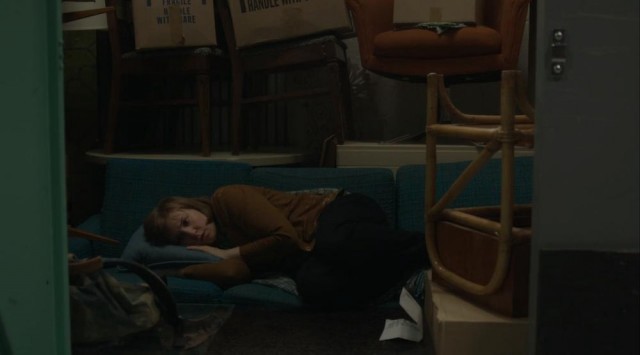Keeping the Junk

I found myself stuck at home with a bad ankle this weekend, so I did what I normally do when I’m stuck at home: I cleaned.
After a few hours, I had filled two garbage bags full of old junk I didn’t need, tied up stacks of magazines and junk mail for recycling, and packed some clothes into a shopping bag for donating. Spring cleaning had come a little early, but after I had dropped off the recycling and garbage bags into the bins in front of my building and walked back into my apartment, I couldn’t help but notice how much stuff I still had: a mound of books I hadn’t yet cracked open, art prints I hadn’t framed, piles of reporter’s notebooks I hadn’t yet decided whether to keep or toss.
If somehow, god forbid, my apartment were to catch fire and I were to lose everything, I wouldn’t really miss any of it. And yet: This stuff has mattered enough to take up my shelves and evade the garbage bin.
Emily Keeler writes in the National Post that we’ve “hit peak KonMarie Method madness.” KonMarie is the nickname of a 30-year-old Japanese woman who has made a living telling people how to declutter and organize their lives, and to learn, essentially, how to only keep possessions that give them a “spark of joy” and to throw everything else away. Imagine yourself entering into a living space where nothing is there by accident or due to disorganization.
Except, as Keeler points out, some of us are slobs, and our junk is part of who we are:
While I don’t advocate filth, per se, a little dirt here and there is demonstrably good for a person. My house is full of useless books I’ll never read again (or maybe haven’t read in the first place), and half-broken jewel cases for CDs that have gone un-listened to for years. There are cookbooks with recipes for meals I’ll never make, and a slightly mildewy box of old newspapers and magazines. I could throw them out, but it wouldn’t make my life better. Those cookbooks line a wall I walk by every time I enter the house, and even unread they contribute to the sense I have of myself as a person with an appetite. The books I’ve read(and ones I haven’t) likewise make my place mine. Not all of one’s things, but certainly more than some of one’s possessions, become a kind of archive of one’s life; how is one to do as Kondo suggests and “celebrate the person you are now” without being on nodding terms with the person one has been?
I can get behind that.
Support The Billfold
The Billfold continues to exist thanks to support from our readers. Help us continue to do our work by making a monthly pledge on Patreon or a one-time-only contribution through PayPal.
Comments